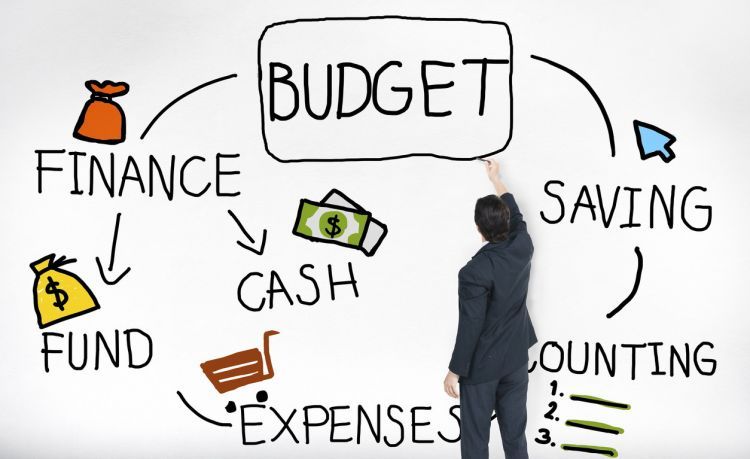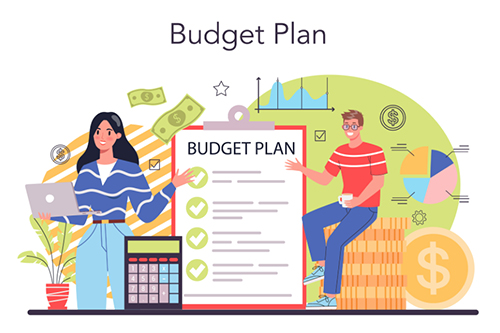A budget is a plan for how you will spend your money each month. It can help you to track your income and expenses, save money, and reach your financial goals.
Here are the steps on how to create a budget for personal finance:
- Calculate your net income. Your net income is the amount of money you have left after taxes and other deductions. You can find your net income on your pay stub or tax return.
- Identify your expenses. List all of your monthly expenses, including housing, food, transportation, utilities, debt payments, and other expenses.
- Categorize your expenses. Group your expenses into categories, such as fixed expenses (expenses that are the same each month) and variable expenses (expenses that vary from month to month).
- Set financial goals. What do you want to achieve with your budget? Do you want to save for a down payment on a house, pay off debt, or save for retirement?
- Create a budget. Once you know your net income, expenses, and financial goals, you can create a budget. There are many different ways to create a budget. You can use a spreadsheet, a budgeting app, or simply a piece of paper.
- Track your spending. Once you have created a budget, it is important to track your spending. This will help you to see where your money is going and make sure that you are sticking to your budget.
- Review and adjust your budget. Your budget is not set in stone. You may need to adjust it as your income and expenses change.
ALSO READ :> Drug-resistant TB patients in city face medicine shortage.

Here are some tips for budgeting for personal finance:
- Be realistic. When creating your budget, be realistic about your income and expenses. Don’t try to cut back too much too soon.
- Be flexible. Your budget is not set in stone. You may need to adjust it as your income and expenses change.
- Be patient. It takes time to get used to budgeting. Don’t get discouraged if you don’t see results immediately.
Budgeting can be a helpful tool for managing your finances and reaching your financial goals. By following these steps, you can create a budget that works for you.

Here are some additional tips that you can try:
- Automate your savings. One of the best ways to stick to your budget is to automate your savings. This means setting up automatic transfers from your checking account to your savings account each month.
- Use cash. Using cash can help you to stay on track with your budget. When you use cash, you can see how much money you have left to spend each day or week.
- Avoid impulse purchases. Impulse purchases are one of the biggest budget busters. Before you buy something, ask yourself if you really need it. If you don’t need it, put it back.
- Don’t be afraid to ask for help. If you are struggling to create or stick to a budget, don’t be afraid to ask for help. There are many resources available to help you, such as financial advisors and budgeting apps.
I hope this blog helps you to learn more about budgeting for personal finance.





